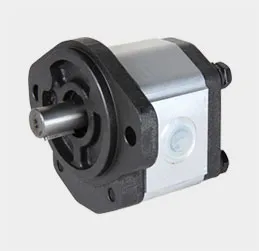Leading Precision Investment Casting Supplier for High-Quality Custom Manufacturing Solutions
Precision Investment Casting Supplier The Key to Quality Manufacturing
In the world of manufacturing, precision is of utmost importance. Among the various manufacturing techniques available, investment casting stands out due to its ability to create complex geometries with exceptional accuracy. As industries such as aerospace, automotive, and medical devices continue to innovate and expand, the demand for high-quality investment casting suppliers becomes increasingly critical. This article explores the significance of choosing the right precision investment casting supplier and the advantages they bring to the manufacturing process.
What is Precision Investment Casting?
Investment casting, often referred to as lost-wax casting, is a process that allows manufacturers to produce intricate metal parts. The process starts with creating a wax pattern that resembles the final product. This pattern is coated with a ceramic shell, which is then heated to remove the wax and harden the shell. Molten metal is poured into the cavity left by the wax, resulting in a highly detailed and accurate metal part once the shell is removed.
Precision investment casting stands out for its ability to produce components with tight tolerances and smooth surface finishes. This is particularly beneficial for industries where performance and precision are non-negotiable, such as aerospace components that require intricate shapes and high reliability.
The Importance of Choosing the Right Supplier
Selecting the right precision investment casting supplier is crucial for a successful manufacturing operation. A reliable supplier will provide not only high-quality castings but also technical expertise and support throughout the production process. Here are some key factors to consider when choosing a supplier
1. Experience and Expertise An established supplier with a background in precision investment casting is more likely to understand the complexities involved in the process. Their experience can help in identifying potential challenges and providing effective solutions.
2. Quality Control A reputable supplier should have stringent quality control measures in place. This includes regular inspections, testing, and adherence to industry standards. Certifications such as ISO 9001 can indicate a commitment to maintaining high quality throughout the manufacturing process.
3. Material Capability Different applications require different materials, and a good supplier should be capable of working with a range of metals and alloys. This versatility allows for a wider range of products and can adapt to specific client requirements.
precision investment casting supplier

4. Technology and Innovation The investment casting industry is continuously evolving. Suppliers that invest in the latest technology and methodologies can often offer improved efficiency, accuracy, and sustainability in their operations.
5. Customer Service Clear communication and reliable customer support can significantly enhance the partnership between manufacturers and suppliers. A supplier who is responsive and open to feedback can foster a collaborative environment that leads to better end products.
Advantages of Working with Precision Investment Casting Suppliers
Collaborating with a skilled precision investment casting supplier brings numerous advantages to manufacturers
- Cost Efficiency Investment casting reduces material waste and allows for the production of complex shapes in a single piece, which can lower overall manufacturing costs.
- Design Flexibility The ability to produce intricate designs without the need for extensive machining opens up creative possibilities for engineers and designers.
- Enhanced Performance The precision achieved in investment casting contributes to the performance of the final product, ensuring that parts fit together correctly and function as intended.
- Rapid Prototyping Many suppliers offer rapid prototyping services, allowing companies to test designs and make adjustments before moving into full production.
Conclusion
In the competitive landscape of modern manufacturing, the choice of a precision investment casting supplier can significantly impact a company's success. By partnering with a reputable supplier, manufacturers can ensure high-quality products, optimize costs, and enhance overall production efficiency. As industries continue to demand more from their components, the role of precision investment casting suppliers will only become more vital, making it essential to choose wisely.
-
Precision Casting Prototypes and Engineering Inc – Innovating Global Manufacturing SolutionsNewsNov.24,2025
-
Precision Casting Facility: Advanced Manufacturing for Global Industries | Hairun SourcingNewsNov.23,2025
-
Leading Precision Casting Corporation: Quality Metal Components for Global IndustryNewsNov.23,2025
-
Precision Cast Rods: Definition, Applications & Future Trends in ManufacturingNewsNov.22,2025
-
Precision Cast Iron Surface Plate: The Backbone of Industrial Accuracy and QualityNewsNov.21,2025
-
Precision Aluminum Investment Casting: High-Accuracy Manufacturing for Modern IndustriesNewsNov.20,2025















